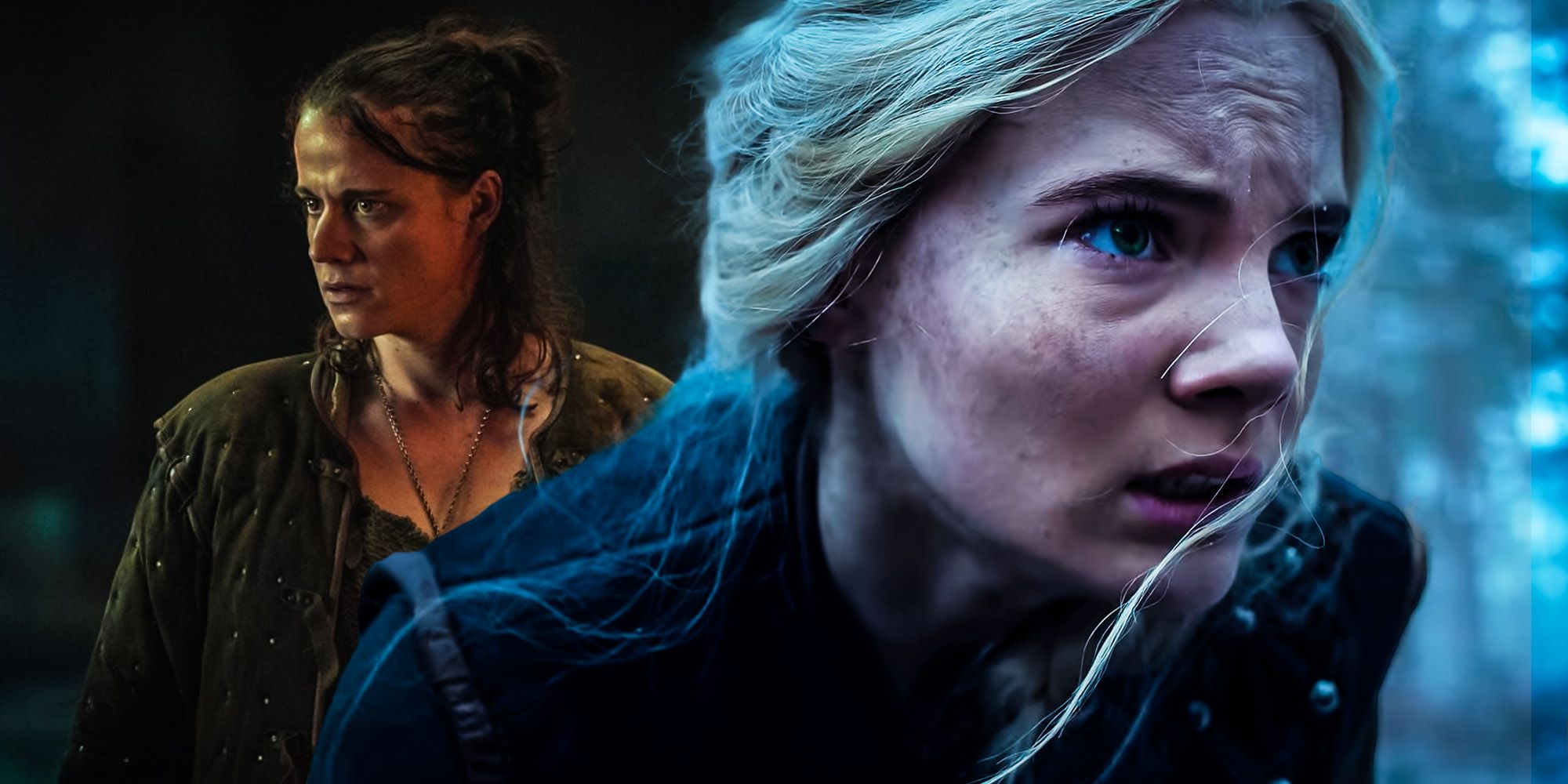Despite its excellence, The Witcher season 2 sabotages one of its best plot twists regarding the beloved character, Eskel. Upon arriving at Kaer Morhen in episode 2, Geralt (Henry Cavill) and Ciri (Freya Allan) are greeted by a number of other Witchers, many of whose names are instantly recognizable to those familiar with the books or video games. One such classic character is Eskel (Basil Eidenbenz), whose lukewarm reception sours even more as his seemingly inexplicable dislike for Ciri blossoms into creepy and aggressive behavior towards the young princess. Before his character has the chance to develop beyond an unfathomable reprobate, it's revealed that he has been infected by a new type of leshy, and Geralt is forced to kill him.
Flashbacks in the next episode of The Witcher season 2 start to show the true, fraternal nature of Geralt and Eskel's relationship, but those that know him from the books were likely shocked at how underdeveloped his character is. The Witcher games and book series by Andrzej Sapkowski create a very different Eskel who is a warm, relaxed, and professional monster hunter. Most notably, they include a subplot for Eskell that perfectly explains why he might not take kindly to Ciri; he himself had a princess child by the Law of Surprise in the past.
By omitting the majority of Eskel's backstory, The Witcher season 2 misses out on a huge plot twist that could have added significantly more depth to the narrative. It also wastes Eskel's character by reducing his entire personality to a borderline antagonist. Whatever gains the show achieved with Eskel's new storyline could have easily been written for any of the other new season 2 Witchers at Kaer Morhen without sacrificing such an intriguing subplot.
In The Witcher lore, Eskel and Geralt are like brothers, and in many ways serve as character foils, particularly in regard to their children of surprise. Before Geralt and Ciri come together, Eskel is granted a child of surprise in the form of Princess Deidre after saving her father from a werebbubb gang. Like Geralt, Eskel rejects this responsibility until Deidre seeks asylum at Kaer Morhen from Sabrina Glevissig, who wants to kill her because she is a princess born under the "Black Sun" and possesses the supposedly cursed mutation of obstructing magic around her. Although he cares about her fate, Eskel is at a loss for what to do, and Deidre ends up fleeing Kaer Morhen after slashing him across the face. This sordid relationship with his own child of surprise is the perfect explanation for Eskel's dislike of Ciri, but Eskel's death changes the story from the books.
The backstory also would have added infinitely more depth to Eskel and Geralt's relationship, and even if his fate remained the same, viewers would have been a lot more invested in Eskel as a character before he died. Instead, the show makes Eskel inexplicably hostile before killing him off in a tensely dramatic scene that leaves the viewer feeling like they missed something. Even if the events with the new type of leshy were absolutely critical to the plot of the season, they could have just as easily been applied to any other Witcher present. Eskel's character could have been saved so that even if his significance to Geralt and Ciri wasn't fleshed out in The Witcher season 2, it could still be an option later.
Netflix's The Witcher sabotaged a huge opportunity for a plot twist and character development by wasting Eskel. Unfortunately, this oversight is indicative of the series' overall problem with storytelling; it doesn't take the time for proper characterization or relationship building with secondary characters. It's fine for shows to deviate from the source material (and is often necessary), but when complex characters like Eskel, who could have hugely contributed to the narrative and character development, are squandered, the whole story ends up feeling rushed and unconvincing. The clearer timeline and superior continuity, among other reasons, make The Witcher season 2 much better than season 1, but the show still has plenty of room for improvement.


